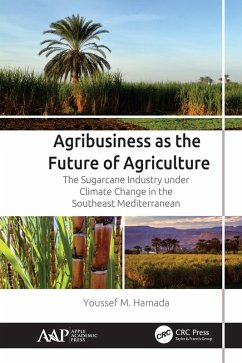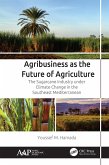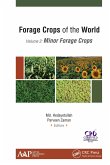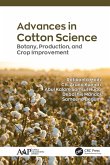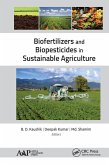As climate change creates new risks to human populations and food security, a better analysis is needed to understand this new level of uncertainty and to understand how it will impact agriculture and its relationship with economies, livelihoods, and development.
Africa emits low greenhouse gases but is hit the hardest by global warming, posing a serious challenge to increasing agricultural productivity in the Southeast Mediterranean. Sugarcane in Egypt is used as a local food source, for international trade, for the balance of payments, for land and water use, and as a basic product for food and fiber manufacturing. Hence every aspect of the economic structure of Egypt relates to agriculture.
The book examines the causes and effects of climate change on agribusiness in the Southeast Mediterranean region, such as its effect on prosperity and net farm incomes crop yields. It considers how to promote agribusiness development in the area and the potential to alleviate poverty in rural areas. It looks at the future of the sugarcane industry in Upper Egypt as a case study of agribusiness, with implications that can be applied globally.
Dieser Download kann aus rechtlichen Gründen nur mit Rechnungsadresse in A, B, BG, CY, CZ, D, DK, EW, E, FIN, F, GR, HR, H, IRL, I, LT, L, LR, M, NL, PL, P, R, S, SLO, SK ausgeliefert werden.

